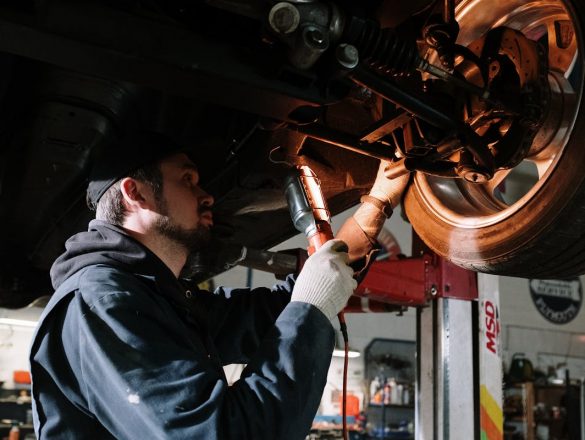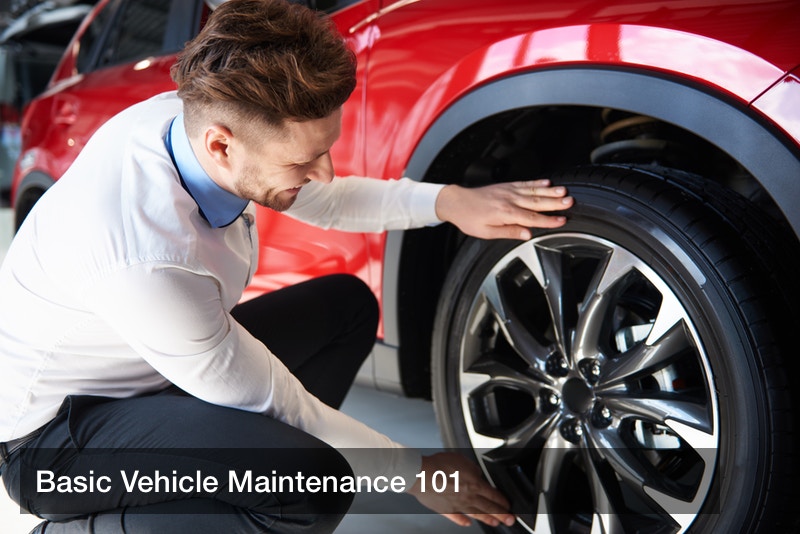
- A brake fluid leak, identifiable by its oily yellowish appearance, can compromise your vehicle’s stopping ability.
- Coolant leaks, usually green, orange, or pink, signal potential damage to the radiator or cooling system components.
- Regular checks and prompt addressing of fluid leaks are essential for smooth and safe vehicle operation.
- Post-accident inspections by a qualified mechanic are crucial for identifying leaks and preventing costly future repairs.
Being involved in a car accident can be a traumatic experience, but it’s important to remember that the safety of yourself and your passengers is the top priority. However, once everyone is safe and sound, it’s crucial to address any damages to your vehicle as soon as possible.
Ignoring auto accident-related car damages can lead to further issues down the road, both financially and in terms of safety. This blog will discuss a few common car damages that you should fix as soon as possible after an auto accident.
Body Damage

One of the most apparent signs of a car accident is body damage, such as dents, scratches, or even more severe damage, like a crumpled hood or fender. Not only does body damage affect the aesthetics of your vehicle, but it can also compromise its structural integrity.
It’s essential to get body damage repaired promptly by a professional auto body shop to ensure that your car remains safe to drive. Additionally, delaying repairs can often lead to the damage worsening over time, resulting in higher repair costs.
Alignment Issues
Another typical car damage after an accident is the misalignment of your vehicle’s wheels. This can result in uneven tire wear, poor handling, and even decreased fuel efficiency. If you notice that your car pulls to one side or if you feel vibrations while driving, it’s likely that your alignment needs to be adjusted. Ignoring alignment issues can lead to more severe problems with your suspension system.
Broken Lights
Broken headlights, taillights, or turn signals are not just cosmetic issues – they are essential for ensuring visibility on the road and signaling your intentions to other drivers. Driving with broken lights not only puts you at risk but also endangers other motorists. Make sure to replace any broken lights as soon as possible after an accident to stay safe on the road.
Broken Windshield
A cracked or shattered windshield is not just an annoyance. It’s a safety hazard. A damaged windshield can impair your vision while driving and compromise the structural integrity of your vehicle in case of another accident. If your windshield has been damaged in an auto accident, make sure to get it repaired or replaced as soon as possible by a professional.
Choose windshield repair professionals who have experience working with your car model and use high-quality materials. They will be able to properly assess the damage and recommend the best course of action. Don’t compromise on your safety by neglecting a broken windshield.
Leaking Fluids
After an auto accident, it’s crucial to check for any leaking fluids under your vehicle. Leaking fluids can indicate severe damage to your car’s systems. Ignoring fluid leaks can lead to engine overheating, transmission failure, brake malfunctions, and other costly repairs down the line. Here are the four most common fluids that may leak after an accident and what they could mean:
Engine Oil
An oil leak can indicate a damaged oil pan, valve cover gasket, or other engine components. It’s essential to address it promptly to prevent engine damage. If you notice a dark brown or black fluid leaking from your vehicle, it’s likely engine oil.
Transmission Fluid
Transmission fluid is typically red or pink in color. A leak can suggest damage to the transmission system, which could be dangerous if left untreated. If you see red fluid under your car after an accident, make sure to get it checked by a mechanic immediately.
Brake Fluid
Brake fluid is usually yellowish and has a distinctive smell. A leak can indicate damage to the brake lines or master cylinder, which could affect your vehicle’s ability to stop quickly. If you notice any changes in your brakes’ performance after an accident, have them checked by a professional.
Coolant
Coolant leaks are often green, orange, or pink in color and have a sweet smell. If your car is leaking coolant, it may indicate damage to the radiator, water pump, or other cooling system components. Driving with low coolant levels can cause engine overheating and potentially lead to costly repairs.
You can ensure your vehicle’s systems are running smoothly and safely by topping up or replacing any of these fluids. Regularly checking for leaks and addressing them promptly can help prevent further damage and costly repairs. Having your car inspected by a professional after an accident is also essential to catch any potential fluid leaks before they become significant issues.
Being vigilant about your vehicle’s well-being, especially after an accident, is crucial for maintaining its longevity and ensuring your safety on the road. Always remember that regular maintenance and post-accident inspections by a qualified mechanic are vital in keeping your car running smoothly and efficiently, safeguarding you against unexpected breakdowns and expensive repairs. Driving with confidence comes from knowing your vehicle is in top condition, so never overlook the importance of addressing fluid leaks immediately.


